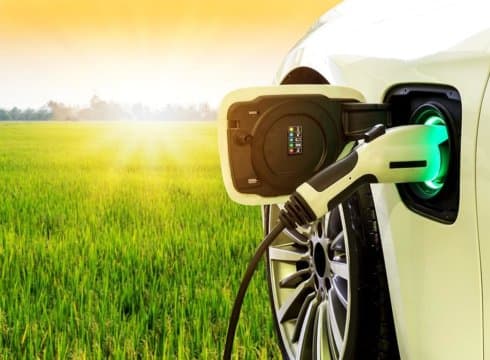Tata Group Has Created An Electric Mobility Division To Focus On EVs And Is Considering Setting Up A Key Working Group
Inc42 Daily Brief
Stay Ahead With Daily News & Analysis on India’s Tech & Startup Economy
The traditional automobile industry has for a while recognised the importance of pre-sale and after-sale services in providing a holistic experience to customers. However, this is yet to extend to the electric vehicles (EV) industry, which is still in a nascent stage. The Tata Group has now taken the onus to ensure a similar experience for its stakeholders in the electric vehicles segment.
According to reports, the Tata Group is planning to adopt a One Tata Approach to offer a complete turnkey solution for companies, shared-mobility providers, government agencies, and others to address EV infrastructure and cost issues. For this purpose, it is considering setting up a working group of key executives from Tata Motors, Tata Power, Tata Consultancy Services (TCS), Tata Realty, and Tata Finance.
The company recently created an electric mobility division to enable a special focus on the segment.
Under its new plan, Tata Motors will offer the car, while Tata Power will set up charging stations, and Tata Realty will help build physical infrastructure, depots, or dedicated EV stations.
TCS will help develop an app or software platform — both at the company-end and at the customer-end — or even offer back-end support.
At the same time, company’s Motors Finance will offer financing or leasing solutions.
The concept emerged when the company tried to seed its electric bus idea for state transport undertakings, Tata Motors MD Guenter Butschek told ET.
The state utilities asked for a complete solution and were willing to pay for use of services.
“When we looked around, we said this group can be of great value and can jointly leverage a new opportunity in the market and this is a multi-billion market in the mid- to long-term if we just join forces. And, we started to build according to the tender requirements as a consortium. The same can be applied in PVs (passenger vehicles) as well,” he added.
Reportedly, Tata Motors was the lowest price bidder for the government’s order for 10,000 electric vehicles and has been pushing the government to come out with a dedicated electric vehicle policy to drive adoption.
Further, Butschek explained that they will approach companies which transport people to work as it can offer “complete peace of mind solution”, including apps for employees to track their pickup or drop time, travel time and that too in a protective environment which is predictable, doing away with issues on range or charge challenges.
Beyond the growth opportunity in public transport and corporate fleets, Tata Motors is focusing to encash on its Tigor and Tiago EV to individual buyers and shared mobility providers.
The development comes soon after reports surfaced that central government officials have refused to use electric vehicles developed by Mahindra and Mahindra (M&M) and Tata Motors citing poor performance and low mileage.
Under the National E-Mobility Programme, the ministry of power rolled out electric vehicles by the two. Tata Motors and Mahindra were to supply 350 units and 150 EVs, respectively, in the first phase. Subsequently, the automakers were to provide another 9,500 units of EVs to the EESL, with M&M accounting for 40% of the total.
At the same time, the government is looking to tighten the ’22 CAFE norms. Reportedly, a proposal regarding the same has been made in a report submitted by the ministry of road transport to the NITI Aayog.
Under the CAFE norms, automakers are required to manufacture cars that are 30% or more fuel-efficient from 2022 and 10% or more between 2017 and 2021.
According to a report by the Society of Manufacturers of Electric Vehicles, there has been a 37.5% rise in the sale of EVs in India in recent years. The market for electric vehicles is growing rapidly in India, as the government works to ensure 30% electric mobility in India by 2030.
As the government continues to push for electric vehicles mobility in the country, the slow and tedious process of policy framework is one of the major concerns of the industry. With players like Tata, Ola etc taking up the onus to push for the sector, it is high time the complementary support is provided on the government front with clear directives in the mobility space.
[The development was reported by ET.]
{{#name}}{{name}}{{/name}}{{^name}}-{{/name}}
{{#description}}{{description}}...{{/description}}{{^description}}-{{/description}}
Note: We at Inc42 take our ethics very seriously. More information about it can be found here.


